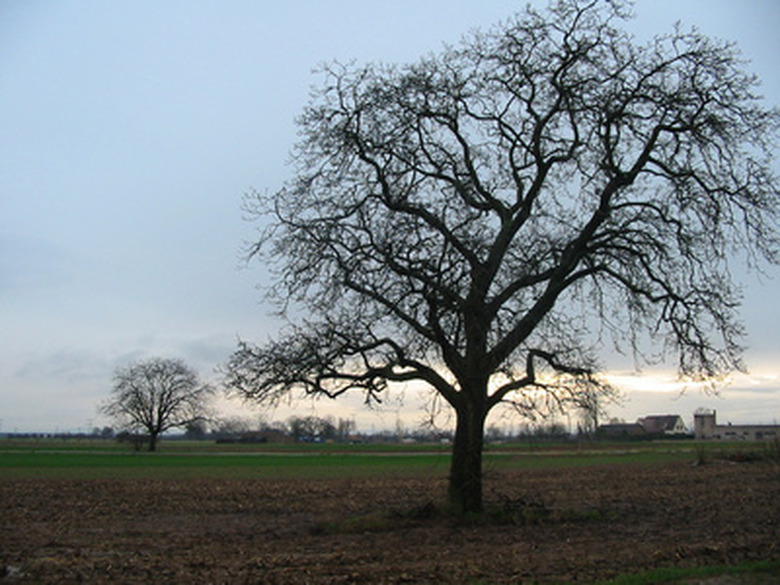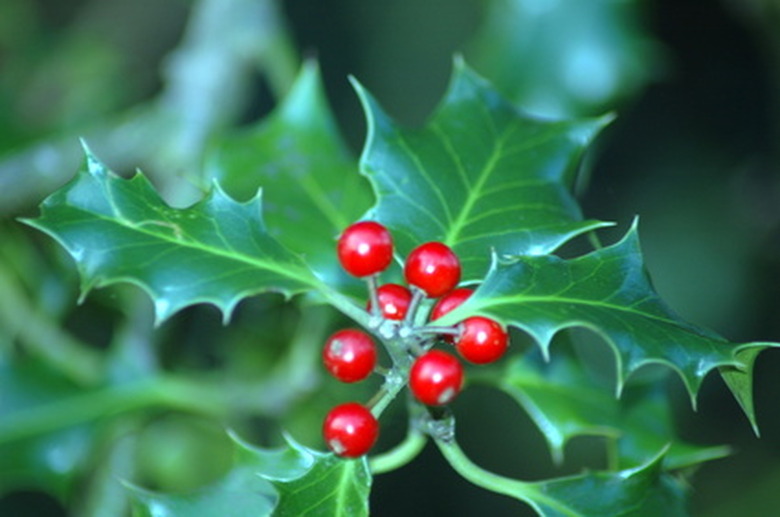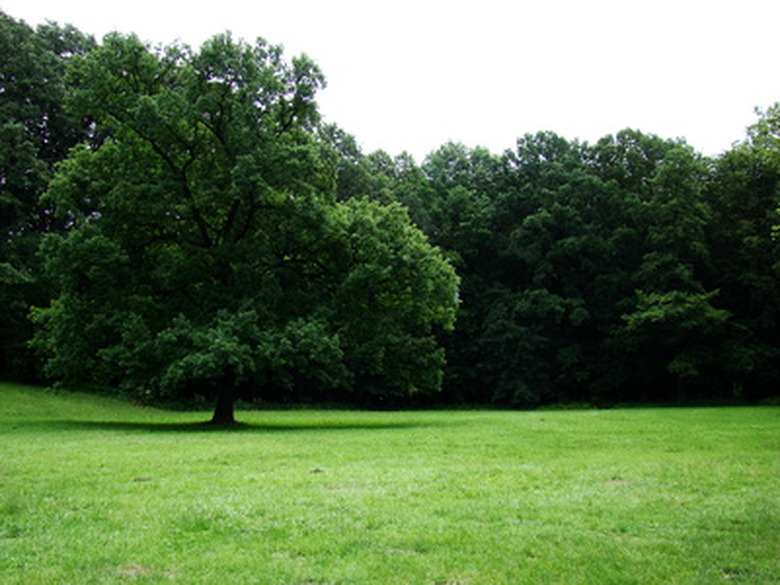What Trees To Grow Near Black Walnuts?
The black walnut tree (Juglans nigra) produces a substance known as juglone. Juglone inhibits the vascular system of many plants and trees. This presents a unique challenge to homeowners looking to plant around one of these trees, or introduce a new black walnut to their landscapes. Fortunately, there are a number of complimentary trees that grow around the black walnut tree with ease.
Maples
Most maples are tolerant of the toxicity of black walnut trees. The University of Wisconsin's Urban Horticulture department lists boxelder maple, black maple and sugar maple as the most juglone-tolerant maple trees. These trees, known as Acer negundo, A. nigrum and A. saccharum, respectively, grow between 30 and 145 feet in height. Noted for their colorful fall foliage and importance to both commercial operations and wildlife, these maple trees grow spectacularly when planted near black walnut trees.
- The black walnut tree (Juglans nigra) produces a substance known as juglone.
- Noted for their colorful fall foliage and importance to both commercial operations and wildlife, these maple trees grow spectacularly when planted near black walnut trees.
American Holly
American holly, or Ilex opaca, is an evergreen tree that grows in a wide area of the United States. American holly is listed by the University of Wisconsin as juglone tolerant. Growing to heights of 40 to 50 feet tall, American holly is easily trimmed into a smaller size or different shape. American holly prefers full sun and tolerates a variety of soils. The characteristic red berries of the American holly are an important winter food for songbirds.
Oak
White oak, red oak and shingle oak all grow well near black walnut trees, according to Purdue University. Known as Quercus alba, Quercus rubra and Quercus imbricaria, these majestic, long-lived trees favor a similar habitat as black walnut. Oaks often grow in excess of 100 feet tall, while the black walnut tree grows to about 50 feet maximum. All prefer rich, lowland soils but will thrive almost anywhere they are planted. Oaks and black walnut will often compete for sunlight and nutrients, making an oak tree an ideal planting companion if you are looking to scale back the growth of your black walnut tree.
- American holly, or Ilex opaca, is an evergreen tree that grows in a wide area of the United States.
- Growing to heights of 40 to 50 feet tall, American holly is easily trimmed into a smaller size or different shape.
Flowering Dogwood
Known scientifically as Cornus florida, flowering dogwood is resistant to the juglone toxins produced by black walnut trees, according to the University of Wisconsin. Flowering dogwoods grow to a maximum height of about 35 feet, but they are often wider than they are tall. The trees are known for their bright white flowers, reddish leaves and characteristic smell. Dogwood trees compliment black walnut trees with a contrast of size, shape and color. If you are looking to detract attention from a black walnut tree, flowering dogwood is an ideal choice.
References
- Purdue University Department of Horticulture: Black Walnut Toxicity
- University of Wisconsin Urban Horticulture Extension: Juglone-Tolerant Plants
- "National Wildlife Federation Field Guide to Trees of North America"; Bruce Kershner, Craig Tufts, Daniel Mathews, Gil Nelson; 2008




